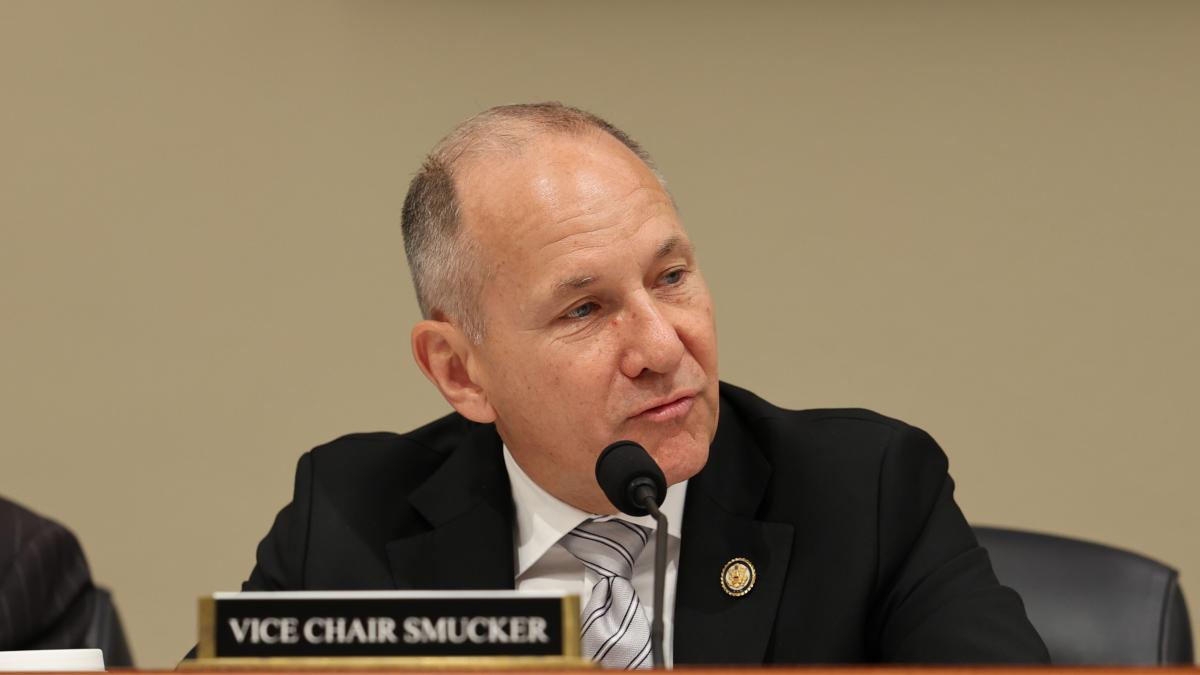Rep. Smucker: Setting the record straight on the One Big Beautiful Bill

The media plays an important role in helping our democratic republic thrive, especially in helping the public to understand complex public policies.
That is why I was disappointed that YDR did not reach out to my office for comment for a recent story about an event discussing the impact of the recently passed One Big Beautiful Bill. The result was an article (titled: “York County woman who depends on Medicaid to care for her disabled son fears cuts: forum”) that left readers misinformed and without a balanced perspective.
The event was scheduled on a voting session day for the House of Representatives, and I was unable to attend. My office clearly communicated our scheduling conflict to the event organizers in advance, but they chose to hold the event regardless.
Medicaid coverage and reforms
As a father of three and a Member of Congress, I work every day to advance the goal of ensuring that America’s children and their families have a more prosperous and secure future.
I thank Lesley Cyford for sharing her family’s story. I want to be clear: the One Big Beautiful Bill makes no changes regarding Medicaid coverage for individuals with disabilities.
The legislation’s modest reforms introduce new community engagement or work requirements for able-bodied adults without dependents — not for families like the Cyfords. Under the reforms, individuals who are able to work but choose not to would be required to take simple steps — like working, volunteering, pursuing education, or enrolling in job training — for just 20 hours a week to maintain eligibility for Medicaid. This is a reasonable expectation that aligns with the dignity of work — and it’s what taxpayers expect.
By strengthening Medicaid’s finances, these changes help ensure that people like Landon will continue receiving the care they depend on.
Support for rural health care and nursing homes
The author states: “Rural hospitals and nursing homes that rely upon the funds to survive may close.”
That statement is highly misleading and lacks context.
It is disingenuous to say that rural hospitals will be closing. The OBBB includes targeted funds to support rural hospitals. The changes to state provider taxes address how states like Pennsylvania have used these taxes to artificially inflate the amount of money it receives from the federal government in Medicaid reimbursements. These adjustments are modest and phased in gradually to prevent disruption. While portions of southern York County are indeed rural, there are no medical facilities in York County that meet the federal definition of rural.
Regarding seniors — no senior in a nursing home is losing Medicaid benefits because of the OBBB. In fact, there is no change to senior Medicaid eligibility. Nursing homes are specifically exempted from changes to state provider tax structures, and medical providers in nursing homes will not see any changes to their reimbursement rates.
SNAP program reforms
The OBBB has also been mischaracterized for changes to the SNAP program. The legislation will make many states pay for part of their SNAP benefits if they continue to have high rates of payment errors. Pennsylvania’s payment error rate is nearly 11 percent, meaning one out of ten SNAP payments is wrong. That is waste that needs to be addressed by the Commonwealth. States that attain basic good governance standards will not incur new costs. However, taxpayers should not be on the hook for continued administrative failures that states ignore, rather than resolve.
Transportation and local funding
Concerns about mass transit funding are misplaced. Nothing in the OBBB impacts local transportation programs. The legislation reclaimed unused grant funds, but none of those funds came from York County.
The author of the piece also suggests that Community Development Block Grants would be cut by 2026. That’s patently false.
Just last week, the House of Representatives’ Appropriations Committee advanced legislation which continues to fund that program for the next fiscal year.
Tax relief for families and seniors
The facts are that this legislation supports working families.
In response to the pain felt by families by four years of devastating inflation under the Biden administration, Congress locked in low tax rates and extended targeted tax relief.
The Child Tax Credit, used by 40 million families, is increased. The legislation raises the standard deduction for all filers, putting more money back in your pockets. It will also spur greater business investment by providing them with much-needed certainty in our tax code.
The OBBB delivers real tax relief for seniors on fixed incomes, eliminates taxes on tips and overtime, and allows tax deductions on auto loan interest for purchases of American-made vehicles.
And it achieves all of this while also advancing key policy priorities like securing our border, unleashing American energy dominance, and strengthening our national security.
Americans have always believed in hard work, personal responsibility, and the right to keep more of what they earn. The One Big Beautiful Bill delivers on that promise — providing relief for families, certainty for businesses, and a more secure future for our nation.